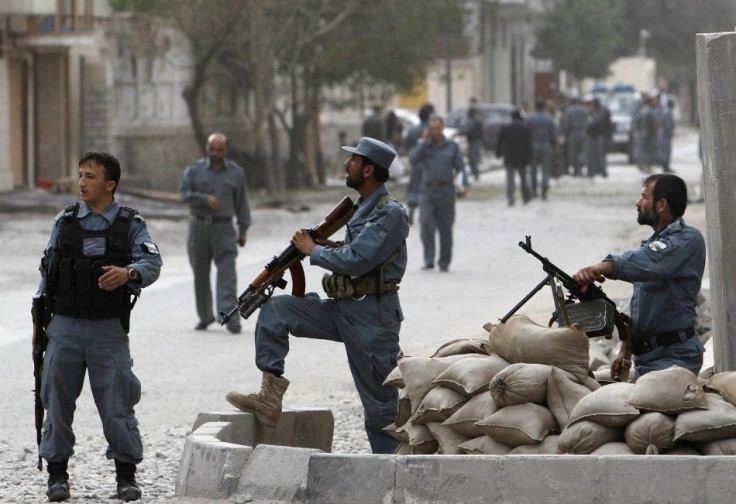Kabul Attack Ends; Siege Linked to Haqqani Network

Afghan and NATO security forces have stopped the attack in Kabul that killed 14 people. It took 20 hours, but the last two militants were cleared from their high-rise hiding spot early Wednesday morning.
U.S. Ambassador to Afghanistan Ryan Crocker downplayed the attacks, despite the fact that U.S. embassy was hit by six rocket-0propelled grenades.
This really is not a very big deal, a hard day for the embassy and my staff who behaved with enormous courage and dedication, Crocker told reporters Wednesday.
The Taliban claimed responsibility for the attacks, which started on Tuesday morning, and Crocker added that the U.S. believes the militants belonged to the Haqqani network, a Pakistan-based insurgent group with close ties to the Taliban.
If that's the best they can do, you know, I think it's actually a statement of their weakness and more importantly, since Kabul is in the hands of Afghan security, it's a real credit to the Afghan National Security Forces, he said.
Haqqani is based in North Waziristan, Pakistan, close to the Afghan border. Terrorists groups have been able to thrive in the lawless region between two countries in recent years, which has caused a serious security risk to both Pakistan and Afghanistan.
On Tuesday morning, five armed militants planted high up on a building next to the U.S. embassy fired down upon the embassy with rockets and machine guns. Local police and Black Hawk helicopters fired at the gunmen by the embassy, killing two. The other three insurgents hunkered down in the building, using hand grenades to keep local and NATO troops from getting too close.
Contemporaneously, there were attacks on NATO headquarters, a police station and an intelligence office in Kabul, which were followed by at least three attempted suicide bombings near the airport.
The insurgency comes only two days after the tenth anniversary of Sept. 11, the tragic terrorist attack that directly led to the United States' war in Afghanistan.
In June, President Barack Obama announced that 10,000 U.S. troops would be withdrawn from Afghanistan by the end of the year, with the final 30,000 to be removed by 2012.
Transition will proceed on pace. Again, you know, not a fun day at the embassy yesterday but it was harassment rather than a direct attack, Crocker said.
That tells me that Afghan forces are first able to prevent really major operations and I feel good about what yesterday shows about their ability to minimize threats.
We are witnessing that the Taliban try to test transition but they can't stop it, Anders Fogh Rasmussen, the Secretary General of NATO, commented. Transition is on track and it will continue.
The Taliban has said that it will not stop fighting until all foreign troops are out of Afghanistan.
Last Saturday, two Afghan civilians were killed and 77 U.S. troops wounded when the Taliban detonated a truck bomb at the Combat Outpost Sayed Abad in Wardak province.
The type of multi-staged attacks seen on Tuesday is being used with increasing frequency in Afghanistan, as well as by insurgent groups all over the world. To maximize casualties, militants will detonate one explosive and then wait for police and emergency personnel to respond before detonating a second.
Insurgents have also shifted their focus from civilian to government targets, with hopes of destabilizing the state or scaring foreigners out of their country.
© Copyright IBTimes 2024. All rights reserved.











